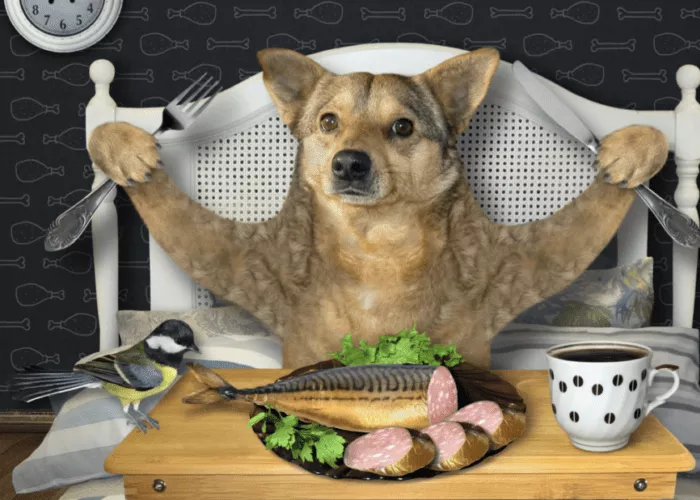Dogs are known to be curious creatures and they tend to eat almost anything they come across. As a dog trainer, one of the common questions I receive from dog owners is whether it is safe for their dogs to eat tuna. In this essay, I will discuss what happens if a dog eats tuna and the potential risks associated with it.
What is Tuna?
Tuna is a saltwater fish that is commonly consumed by humans. It is a great source of protein and omega-3 fatty acids, which are essential for human health. However, tuna is not a natural part of a dog’s diet.
Can Dogs Eat Tuna?
Yes, dogs can eat tuna, but it should be given in moderation. Tuna is not toxic to dogs, but it can cause health problems if consumed in large quantities or on a regular basis. It is important to note that canned tuna often contains high levels of sodium, which can be harmful to dogs.
The Risks of Feeding Tuna to Dogs
There are several risks associated with feeding tuna to dogs. Here are some of the potential risks:
Mercury Poisoning
Tuna is known to contain high levels of mercury, which is toxic to dogs. If a dog consumes too much tuna, it can lead to mercury poisoning, which can cause symptoms such as vomiting, diarrhea, and loss of coordination.
Digestive Issues
Tuna can be difficult for dogs to digest, especially if it is not cooked properly. Raw or undercooked tuna can contain harmful bacteria that can cause digestive issues such as diarrhea and vomiting.
Sodium Poisoning
Canned tuna often contains high levels of sodium, which can be harmful to dogs. If a dog consumes too much sodium, it can lead to sodium poisoning, which can cause symptoms such as vomiting, diarrhea, and seizures.
Allergic Reactions
Some dogs may be allergic to tuna. If a dog has never eaten tuna before, it is important to introduce it slowly and monitor for any signs of an allergic reaction, such as itching, swelling, or difficulty breathing.
What to Do if Your Dog Eats Tuna
If your dog eats tuna, it is important to monitor them for any signs of illness. If your dog exhibits any of the following symptoms, you should contact your veterinarian immediately:
- Vomiting
- Diarrhea
- Loss of appetite
- Lethargy
- Difficulty breathing
Preventing Your Dog from Eating Tuna
The best way to prevent your dog from eating tuna is to keep it out of their reach. If you do choose to feed your dog tuna, make sure it is cooked properly and given in moderation. It is also important to choose low-sodium options and avoid giving your dog canned tuna that is packed in oil.
Feeding Your Dog a Balanced Diet
As a dog trainer, I always emphasize the importance of feeding your dog a balanced and nutritionally complete diet. While tuna can provide some nutritional benefits for dogs, it should not be relied upon as a primary source of nutrition. Dogs require a balanced diet that includes a variety of proteins, carbohydrates, fats, vitamins, and minerals. It is important to choose a high-quality dog food that is specifically formulated for your dog’s breed, age, and activity level.
Alternatives to Tuna
If you are looking for alternative sources of protein for your dog, there are many options available. Some good sources of protein for dogs include chicken, beef, lamb, fish, and eggs. It is important to choose lean cuts of meat and to avoid giving your dog bones, as they can be a choking hazard.
Training Your Dog to Avoid Tuna
If your dog has a habit of getting into the garbage or eating things they shouldn’t, it may be necessary to train them to avoid tuna. One way to do this is to use positive reinforcement training. Whenever your dog avoids tuna or other forbidden foods, reward them with praise, treats, or a favorite toy. Over time, your dog will learn that avoiding tuna is a good thing.
Conclusion
In conclusion, while dogs can eat tuna, it should be given in moderation and with caution. Tuna can cause health problems if consumed in large quantities or on a regular basis. It is important to monitor your dog for any signs of illness if they do eat tuna and to contact your veterinarian if you have any concerns. As a dog trainer, I always recommend sticking to a balanced and nutritionally complete diet that is specifically formulated for your dog’s needs
Related Topics:


